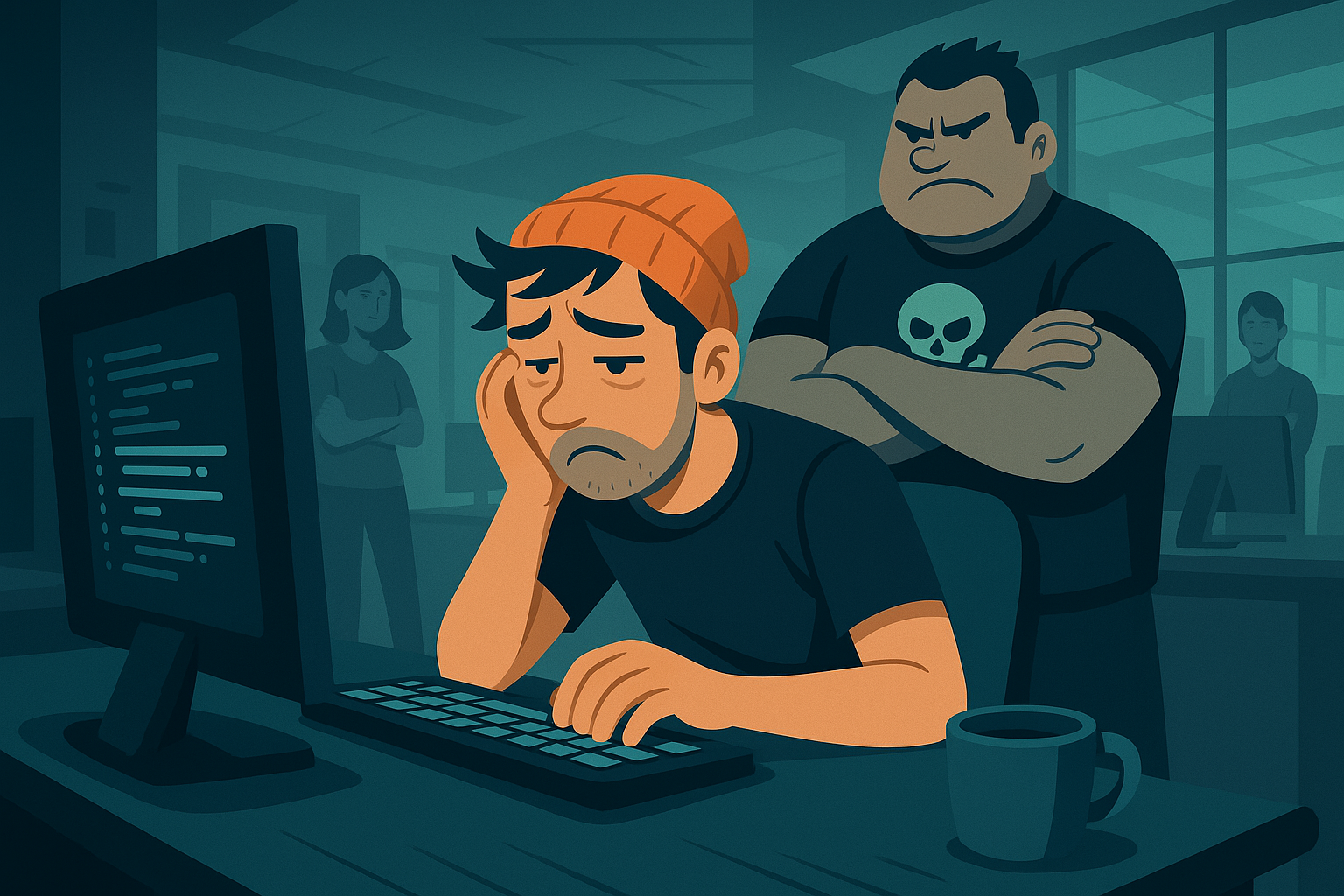
Not every problem in tech comes from bad code. Some of the worst damage comes from bad culture. And sometimes, that culture starts with the very people writing the code.
The myth of the rockstar dev
Toxic developers do not just slow projects down – they poison the environment around them. They block collaboration, demoralise teams, and eventually drive out the people who actually want to build things.
We have all seen it. The so called rockstar who believes the company cannot function without them. They hoard knowledge, write code nobody else can understand, and sneer when someone asks questions. They see peers as competition, not collaborators.
On the surface, they look productive. In reality, they are building a fragile empire that collapses the second they are out of the room. That is not genius. That is sabotage.
The blame game specialists
Another toxic pattern is the developer who never takes responsibility. Bugs are always someone else’s fault. Missed deadlines? Blame the manager. Broken deployment? Must have been ops.
Instead of fixing problems, these people create noise and mistrust. The team spends more time dodging blame than solving issues. Projects slip, morale drops, and leadership has no idea why nothing is moving.
The gatekeepers of progress
Toxic devs often turn into gatekeepers. They fight every new tool, every process, every suggestion that did not come from them. Pull requests take weeks because nothing is ever up to their standard. They call it maintaining quality. Everyone else calls it blocking progress.
The cost of tolerating toxicity
Tolerating a toxic developer is like leaving poison in the water supply. One person can destroy the culture of ten. The best people leave. The ones who stay keep their heads down. Innovation flatlines.
Managers often keep toxic devs around because at least they deliver. That is short term thinking. The long term cost of attrition, delays, and morale loss dwarfs whatever code they ship.
What good looks like
Healthy developers share knowledge instead of hoarding it. They document, mentor, and make the team stronger. They see feedback as collaboration, not an attack. They care less about looking smart and more about making the product succeed.
A great developer is one who makes the whole team faster. A toxic developer does the opposite.
The NinjaWeb take
We have walked into projects poisoned by toxic developers. The symptoms are always the same. Nobody understands the code. Deadlines are chaos. The team is exhausted. The fix is not easy, but it is clear. Identify the toxicity, set boundaries, and if the behaviour does not change, cut them loose.
Because here is the truth. No single developer is worth the death of your culture.
If you want help stabilising your team and putting guardrails in place that protect productivity, we can help. That includes reviewing your infrastructure, putting in proper monitoring, and giving your business the tools to scale without relying on a single toxic bottleneck.
Explore NinjaWeb Business Solutions
Talk to us about Advanced IT Support



